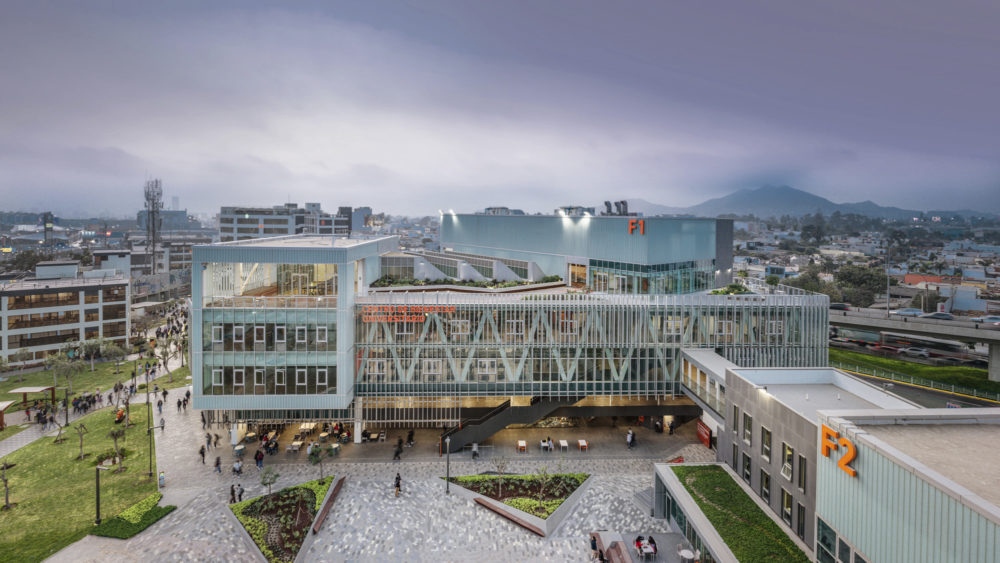
Universidad de Lima Recreation, Wellness, and Student Life Center
Lima, Peru
 Sasaki
Sasaki
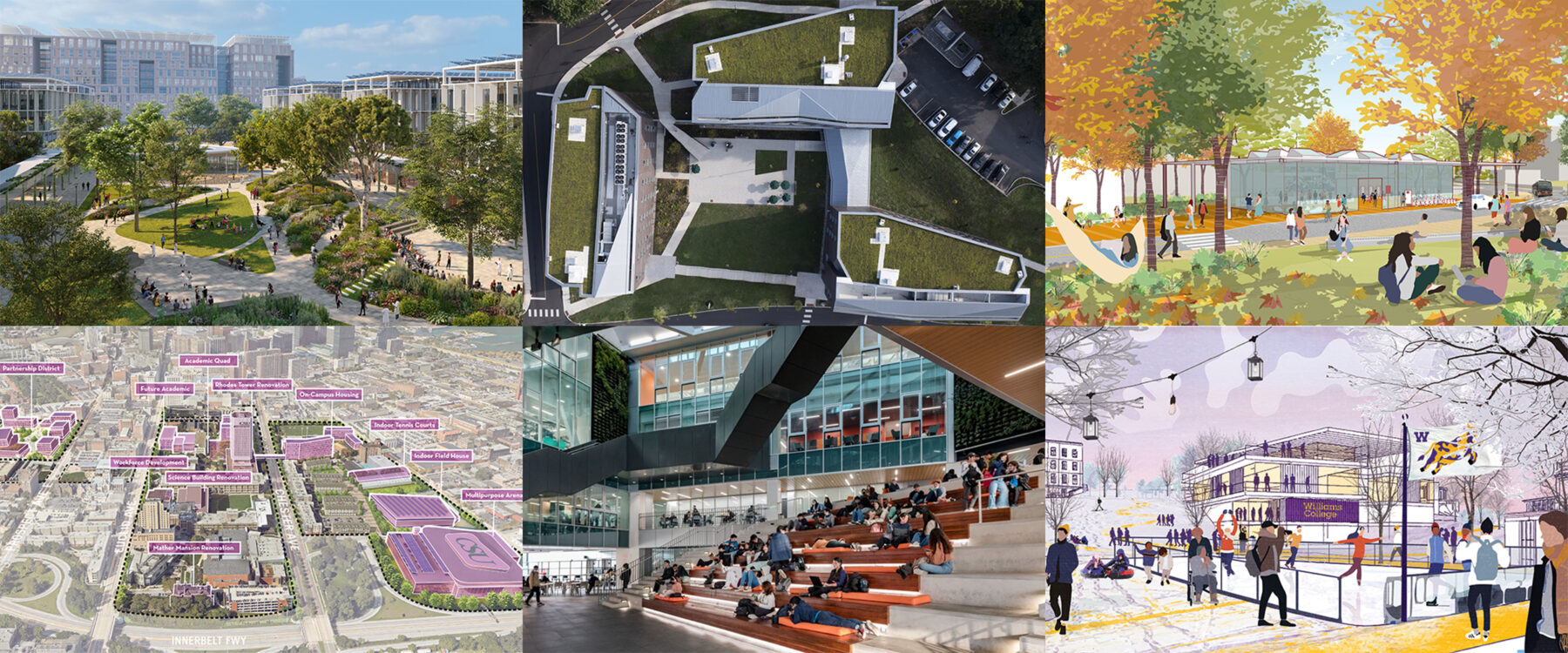
The Society for College and University Planning (SCUP) Excellence Awards honors achievement in strategic, integrated planning that results in exemplary buildings and grounds, institutional success, and careers that inspire. For the 2023 program, a total of six Sasaki projects were honored across three award categories.
Both the Universidad de Lima Recreation, Wellness, & Student Life Center and Lehigh University Singleton, Hitch, & Maida Residential Houses received Merit Awards for Excellence in Architecture for a New Building. The Jio Institute Campus Master Plan received a Merit Award for Excellence in Planning for a New Campus, while the Cleveland State University Campus Master Plan and University of Minnesota Twin Cities Campus Plan received Merit Awards of Excellence in Planning for an Existing Campus. The Williams College Campus Plan received an Honor Award of Excellence in Planning for an Existing Campus.
Read further to learn more about each of the award winning projects.
Universidad de Lima Recreation, Wellness, and Student Life Center received a Merit Award for Excellence in Architecture for a New Building. The Sasaki team began working with the Universidad de Lima on a comprehensive campus master plan that creates a programmatic and a physical framework, providing an implementation plan and design guidelines for the optimization of existing infrastructure and the development of new buildings and landscapes for campus renewal and expansion.
For many years, the University offered little student services and recreation programming for a 25,000-person student body that spends an average of 12-hours a day at school. To address this, a new Recreation and Wellness Center was identified as part of the first stage of the campus development.
Now complete, the project has transformed the physical campus and student life experience. The building and plaza create a student destination that incorporates recreation, nutrition, counseling, physical therapy, weight training, and flexible event spaces. As a major engine of activity on campus, it is a place where students and faculty gather throughout the day and socialize, study, and recharge.
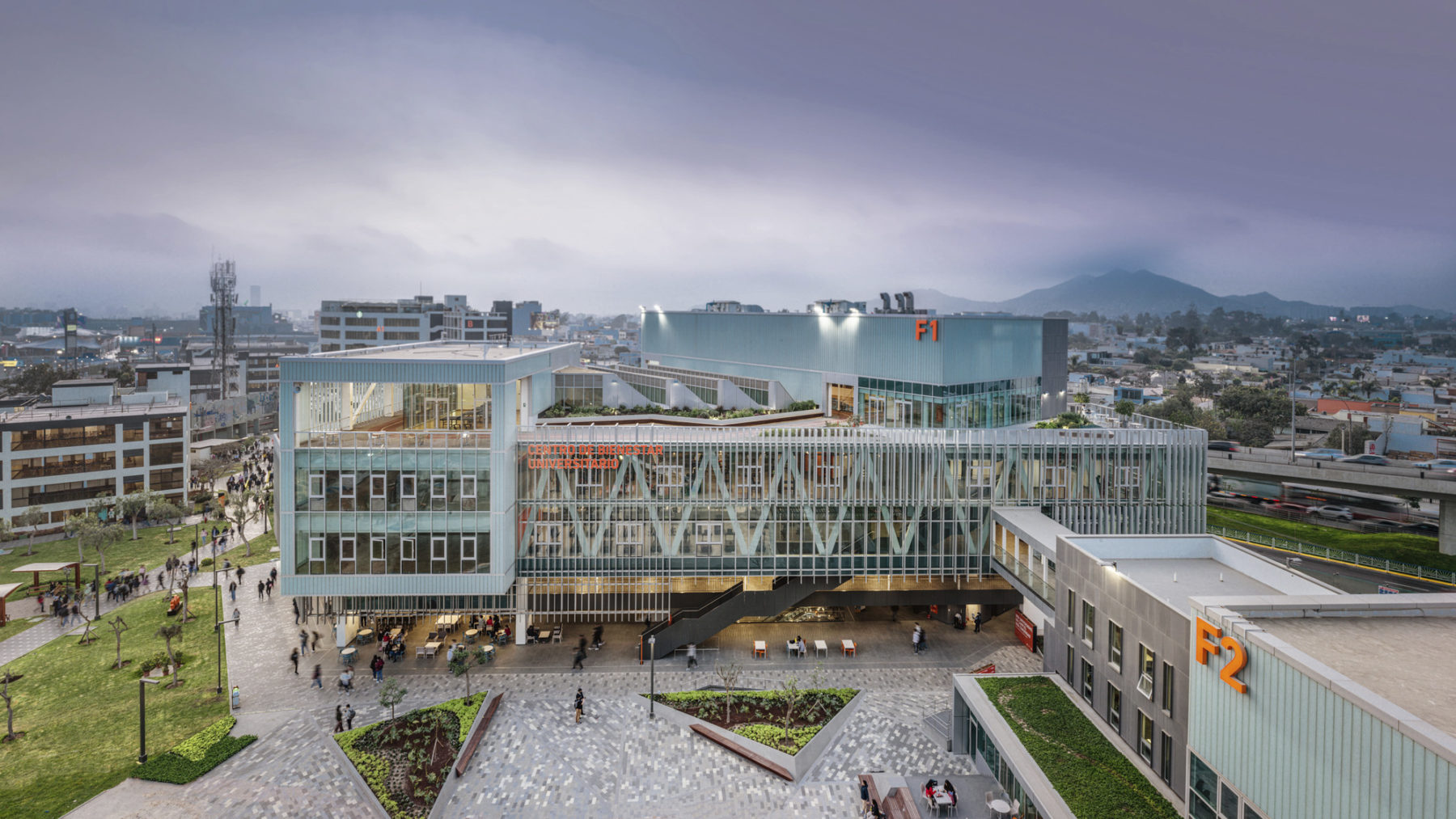
The institutions first ever student recreation and wellness center brings the master plan vision to life by becoming the new crossroads on campus
Lehigh University Singleton, Hitch, and Maida Residential Houses received a Merit Award for Excellence in Architecture for a New Building. The project is deeply engaged with its context; the new residential houses are embedded within Lehigh’s sloped, wooded campus and connect the core – mostly 19th-century stone buildings – with the upper-campus residential district. The material palette picks up on the Lehigh’s prevalent Pennsylvania bluestone and metal roofs, while the ironspot brick alternating between smooth and rusticated textures harmonizes with the iron-rich local stone used on surrounding buildings.
The selected housing typology – semi-suites with private bathrooms – offers more privacy than a traditional residence hall while supporting greater community than student apartments. Fostering wellness through a balance of academically-oriented and social spaces, the project’s program includes a fitness center, café, lounge and multi-purpose spaces that anchor the houses to the campus topography and support health and wellness of students immersed in rigorous academic pursuits.
This project is the outcome of a multi-phase plan for residential life developed by Sasaki, including strategies for existing housing renovation, removal of outdated facilities, and additional capacity to support the school’s growth. Early phases of implementation support the first wave of enrollment growth and enable renovations to existing housing to create parity within the residential life experience.
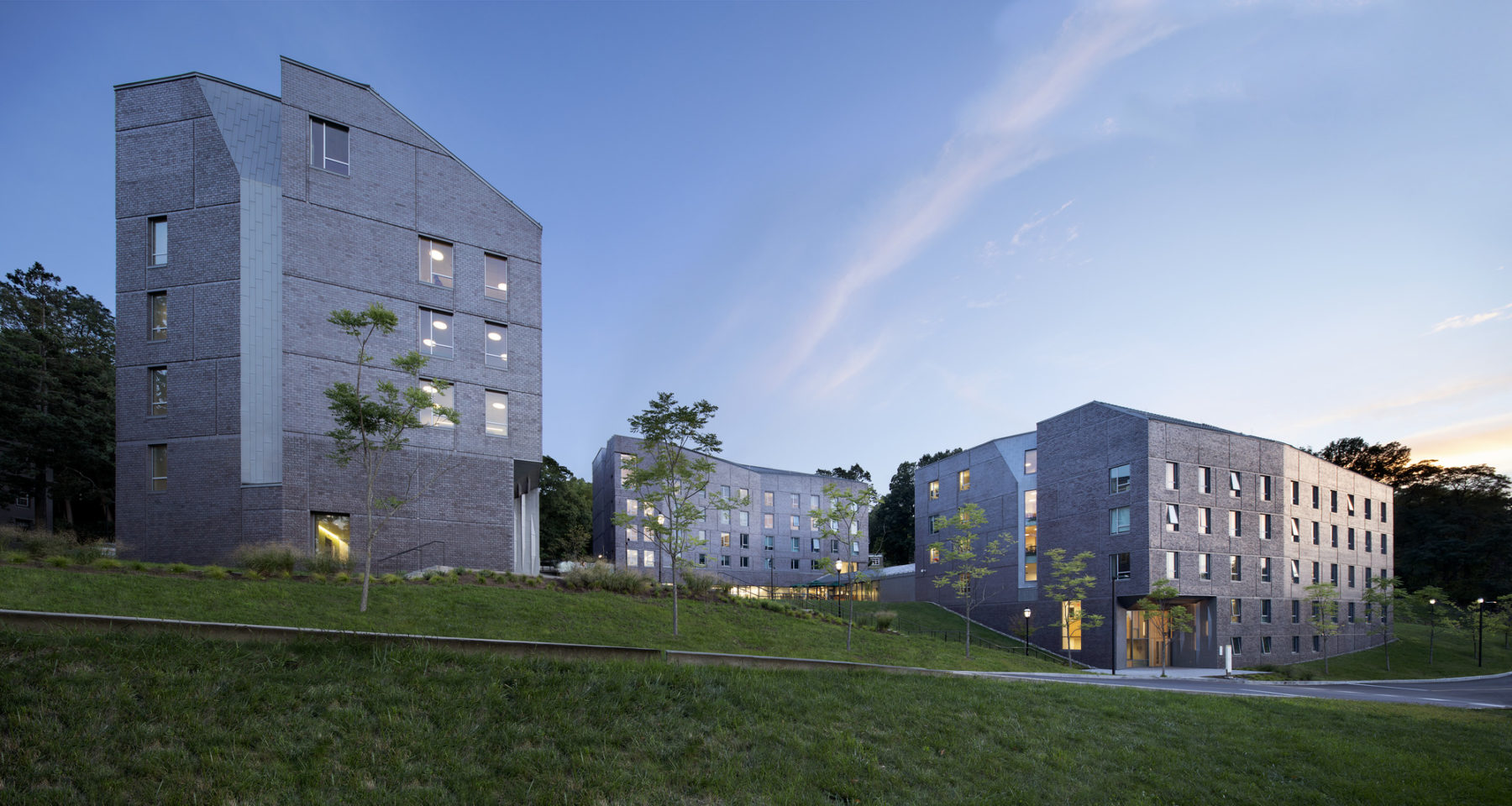
Singleton, Hitch, and Maida Residential Houses at Lehigh University
Williams College Campus Plan received an Honor Award for Excellence in Planning for an Existing Campus. From the outset, Williams College articulated the need for a flexible framework to empower decision-making. In response, the Williams College Campus Plan establishes an organizational structure to frame the location of future development and to direct investment in the public realm.
Sasaki’s vision creates a set of planning principles Williams can follow to realize their strategic plan in the physical environment. The plan creates a reimagined mobility network that realigns existing routes to increase accessibility of the pedestrian network and activate open spaces that are currently underutilized. The plan also reuses the campus’s historic building assets to support emerging programmatic needs, and only considers new construction when the campus’s existing assets cannot be repurposed. This strategy supports the college’s parallel Energy Master Plan and a desire to reduce its carbon footprint.
Early in the process, the college expressed that the success of the plan would be defined by whether or not every person on campus was engaged with the ongoing campus plan. At the concluding Board of Trustees meeting, the client confirmed that this goal had been achieved.
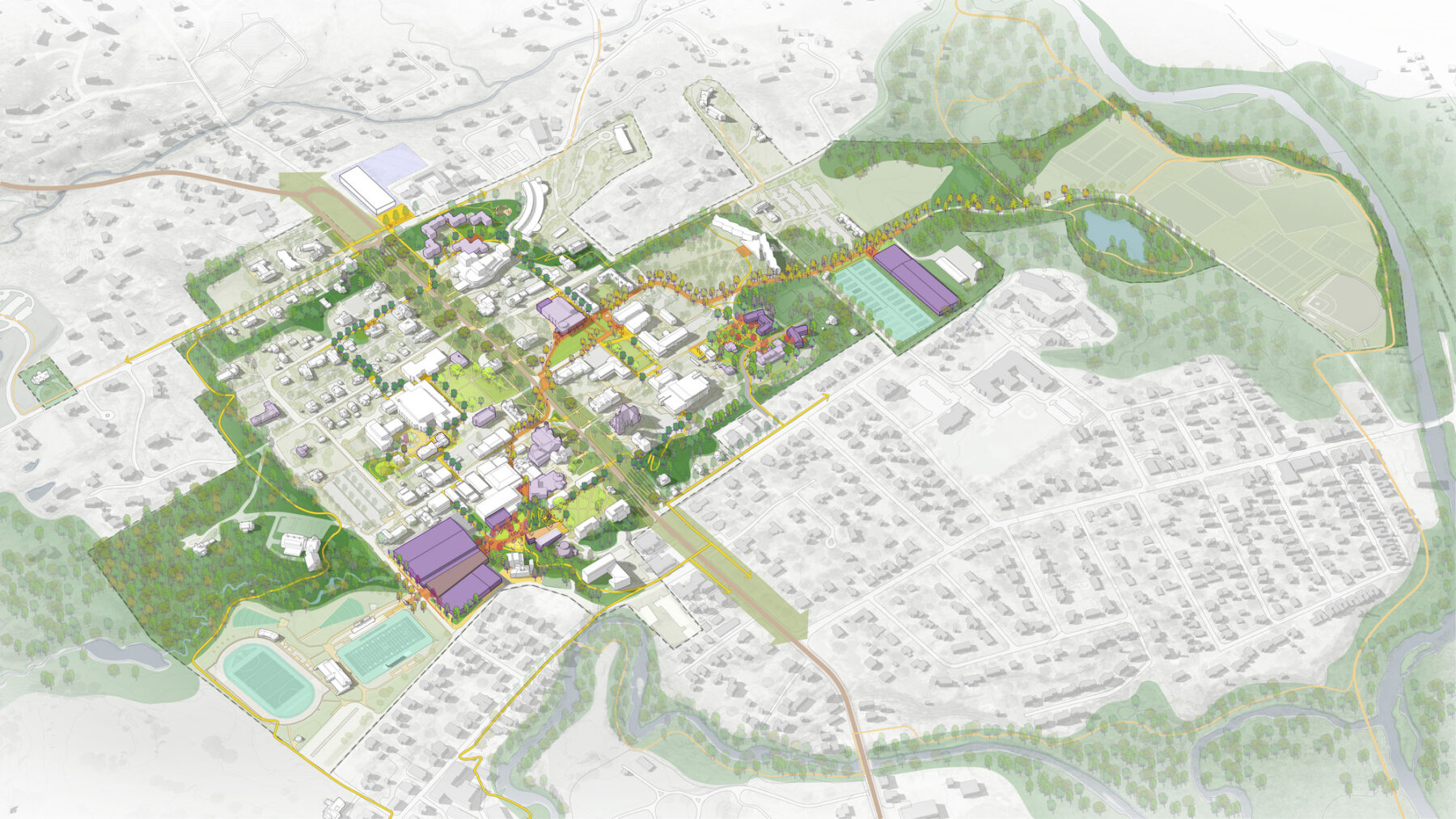
Illustrative site plan
Jio Institute Campus Master Plan received a Merit Award for Excellence in Planning for a New Campus. The Jio Institute Campus Master Plan establishes the framework and design guidelines for development of Jio Institute, a new 400-acre campus in Navi Mumbai that includes a fully residential higher education institution, medical school, hospital, entrepreneurship district, and K-12 school.
The plan is rooted in the eight design principles, three frameworks, and multiple strategies. Frameworks address campus form and building use, landscape, and an inclusive and accessible student experience, while system-wide strategies inform mobility networks, safety and security, sustainability and ecology, smart technology, infrastructure, and phasing. Collectively these elements create an integrated vision that is realized through detailed design guidelines.
To test ideas emerging through the master planning process, the Jio team constructed a pilot campus. The campus was used to evaluate classroom configurations, new pedagogies, and approaches to open space. Midway through the process, the team was able to travel to India to tour the site and visit other relevant case studies, including CEPT and the Indian Institute of Management to explore different models of learning, to Jamnagar to explore integrated housing developments, and to Mumbai to tour innovation centers and hospitals.
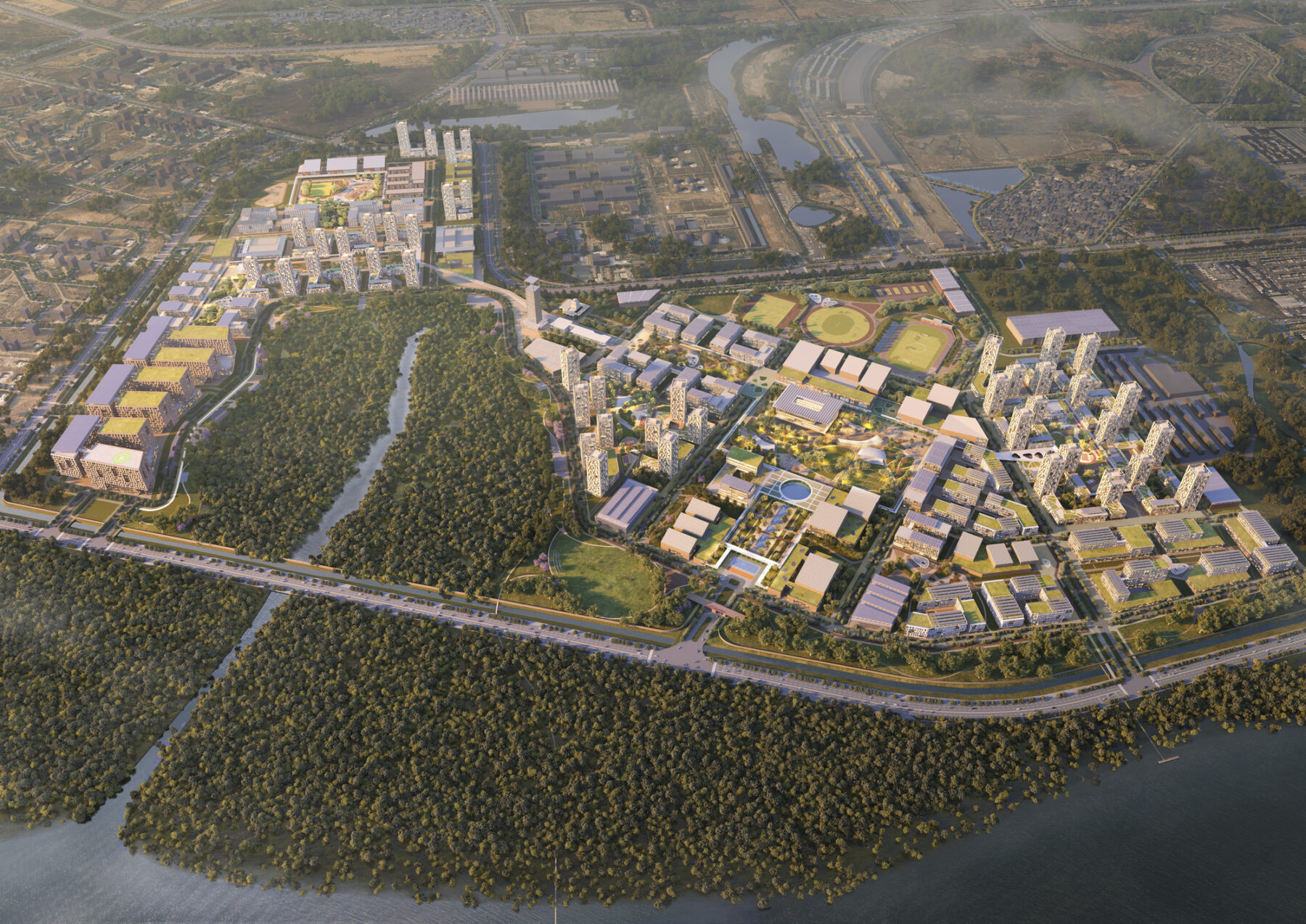
Aerial rendering of Jio Institute Campus Master Plan
Cleveland State University Campus Master Plan received a Merit Award for Excellence in Planning for an Existing Campus. The Cleveland State University Campus Master Plan provides a roadmap to guide the institution’s growth across its downtown Cleveland campus. The university’s strategic plan articulates a vision for an urban student-focused public research institution that provides accessible, affordable, and engaged learning opportunities for all. Accordingly, the campus master plan touches the full spectrum of university activity: academics, research, residential life, wellness, open space, mobility, infrastructure, and sustainability.
The future campus vision advances the university’s mission as both an anchor for Cleveland and as a magnet for attracting talent from the region and beyond. The plan identifies additional opportunities for the 10-year horizon to leverage benefits like place for partnerships and innovation with neighboring institutions, multimodal transit routes that connect to larger urban context, community building around cultural diversity and advancement of equitable outcomes, and more.
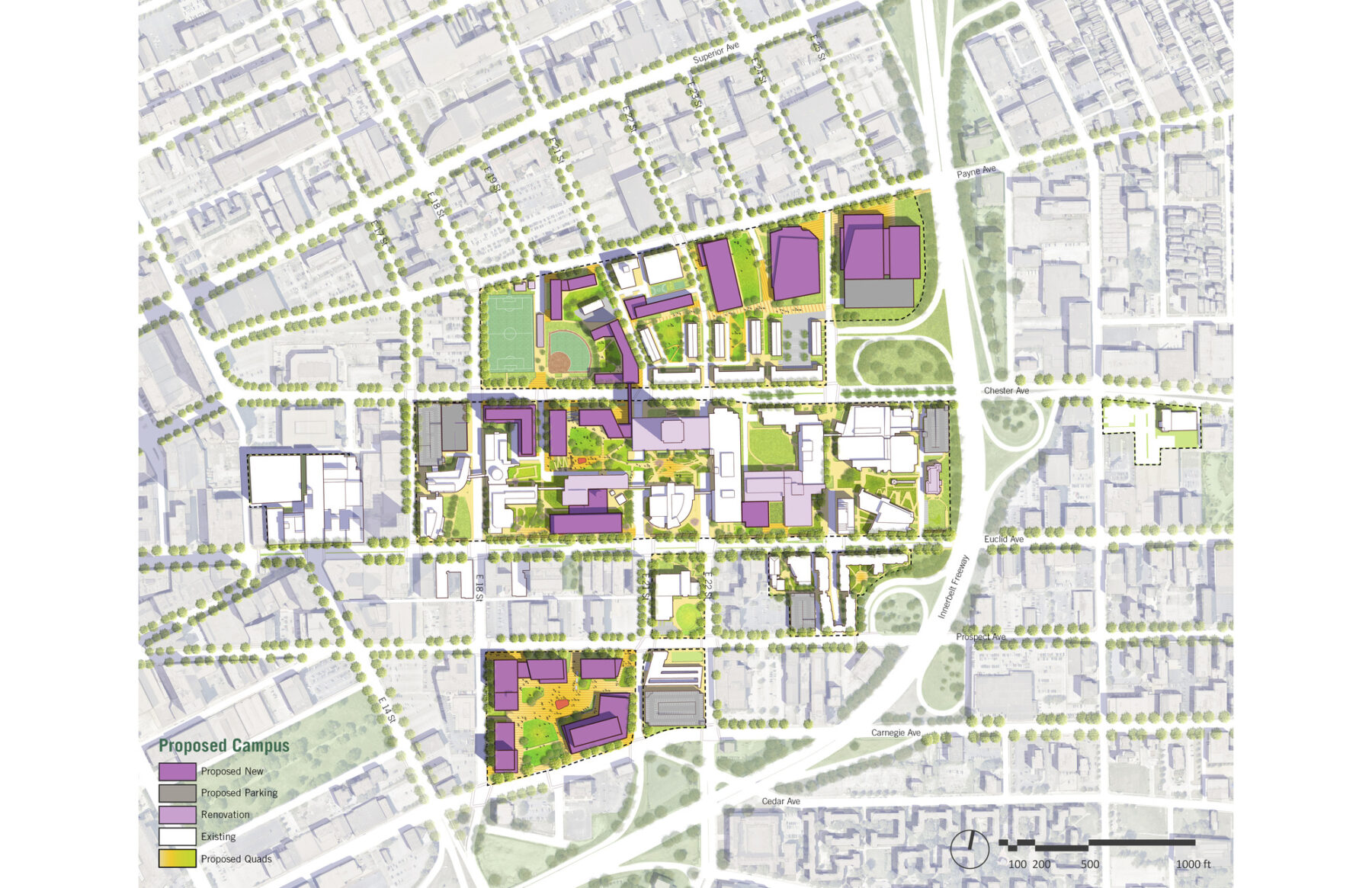
Illustrative site plan of the Cleveland State University Campus Master Plan
University of Minnesota Twin Cities Campus Plan received a Merit Award for Excellence in Planning for an Existing Campus. The University of Minnesota Twin Cities Campus Plan supports the strategic commitments of the University of Minnesota System strategic plan. The plan aims to create a more inclusive campus, enrich the student experience, and make the campus easier to navigate by prioritizing accessibility and multi-modal connectivity. The plan also supports financial resiliency goals, enhances the patient and provider experience in the Health Sciences, and promotes innovation through partnerships. The plan calls for reinvestment in the campus core, engagement with the Mississippi River, alignment of future development with the public realm, and the sustainable use of land and resources.
Sasaki began developing the plan during the COVID-19 pandemic in 2020 and 2021, and in response, developed a robust virtual engagement program consisting of online consultation meetings, discussions, surveys, and presentations. Sasaki also developed a custom website to reach more of the community and solicit feedback on a variety of planning issues and opportunities.
The resulting campus plan establishes a vision for an inclusive, safe, and welcoming experience responsive to the strategic commitments of the university.
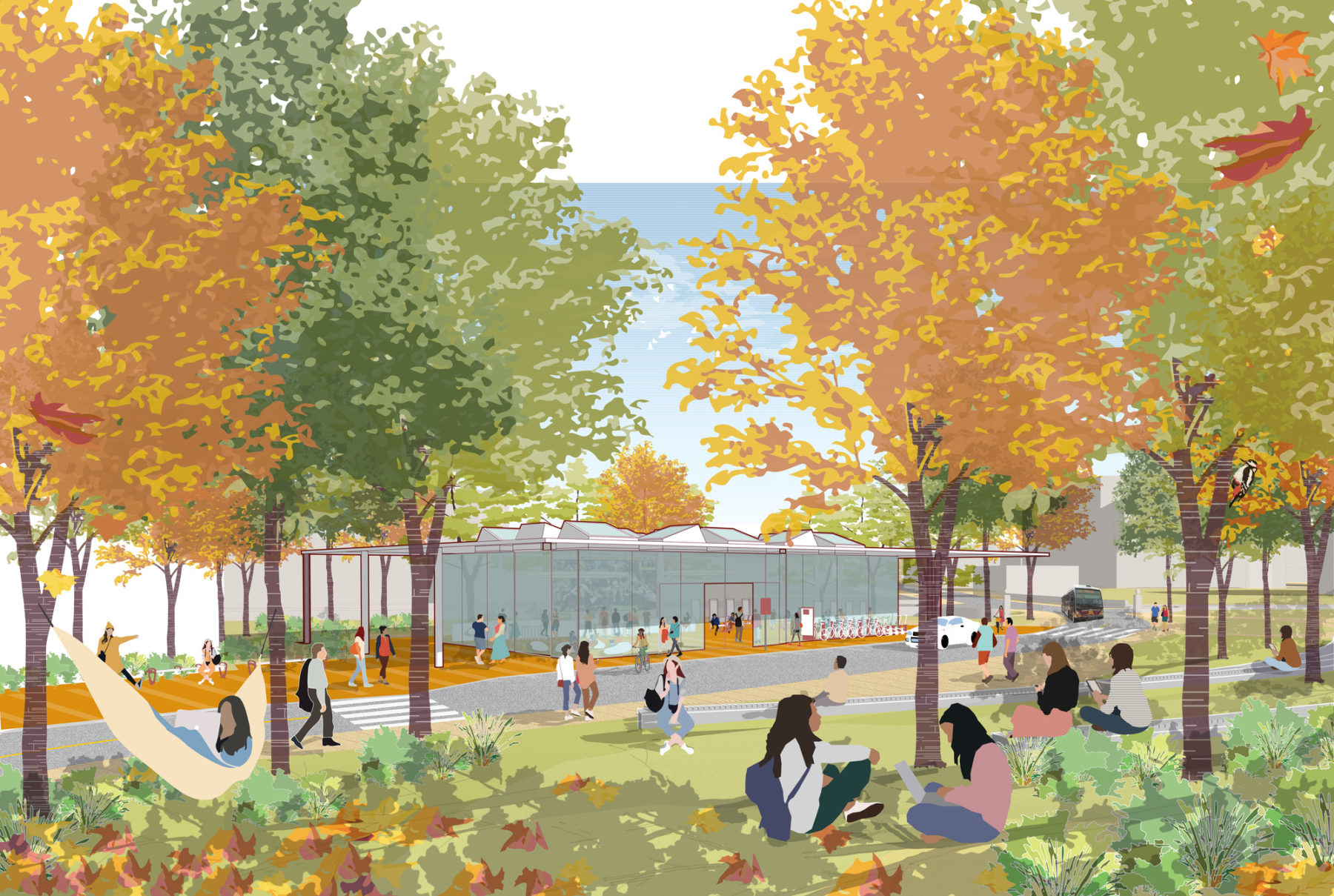
The Knoll Mobility Hub consolidates the transfer point between bus, bike and ride hailing services